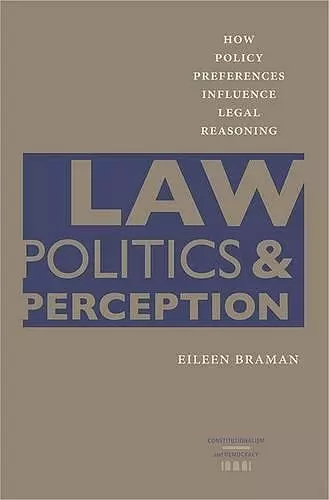Law, Politics, and Perception
How Policy Preferences Influence Legal Reasoning
Format:Hardback
Publisher:University of Virginia Press
Published:30th Oct '09
Currently unavailable, our supplier has not provided us a restock date

Are judges' decisions more likely to be based on personal inclinations or legal authority? The answer, Eileen Braman argues, is both, Law, Politics, and Perception brings cognitive psychology to bear on the question of the relative importance of norms of legal reasoning versus decision makers' policy preferences in legal decision-making. While Braman acknowledges that decision makers' attitudes - or, more precisely, their preference for policy outcomes - can play a significant role in judicial decisions, she also argues that decision makers' belief that they must abide by accepted rules of legal analysis significantly limits the role of preferences in their judgments. To reconcile these competing factors, Brarnan posits that judges engage in 'motivated reasoning', a biased process in which decision makers are unconsciously predisposed to find legal authority that is consistent with their own preferences more convincing than those that go against them. But Braman also provides evidence that the scope of motivated reasoning is limited. Objective case facts and accepted norms of legal reasoning can often inhibit decision makers' ability to reach conclusions consistent with their preferences.
ISBN: 9780813928296
Dimensions: unknown
Weight: unknown
256 pages